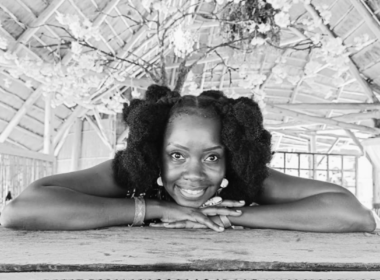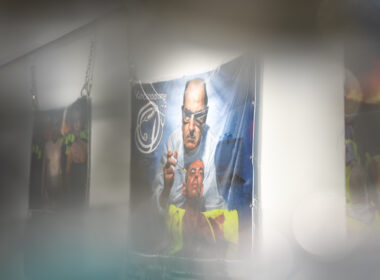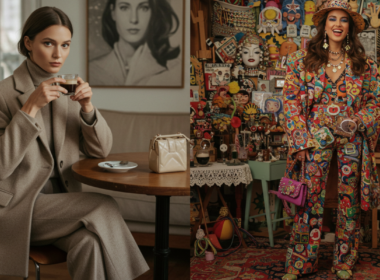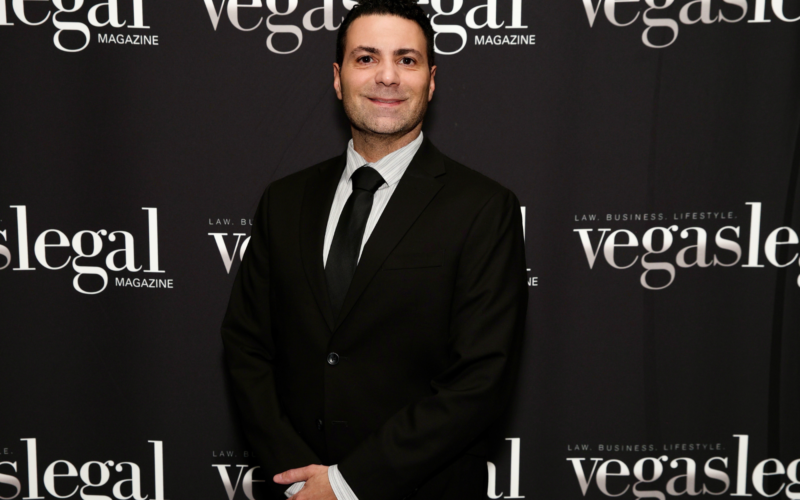Steven Cuoco is a PR maven whose expertise has shaped the trajectories of countless individuals and organizations. With a career spanning three decades, Cuoco’s accolades include not only two-time awards in public relations but also notable collaborations with industry giants like Al Pacino, Stephen King, and David Geist. As the CEO of United Angels Dream, EMAGE Magazine International, Power 98.5 Satellite Radio, and Model Me VIP, Cuoco’s influence extends far beyond traditional media. His international best-selling book, “Guided Transformation: Poems, Quotes, and Inspiration,” reflects his dedication to empowering others through his words and deeds. In this exclusive interview, Steven Cuoco offers insights into his journey, shedding light on the intricate dynamics of public relations, media management, and the art of storytelling, especially in fashion.
Fashion is a beautiful industry; it is an art. However, corporations and greed destroy art and the artist. It is an ugly industry.
Steven Cuoco
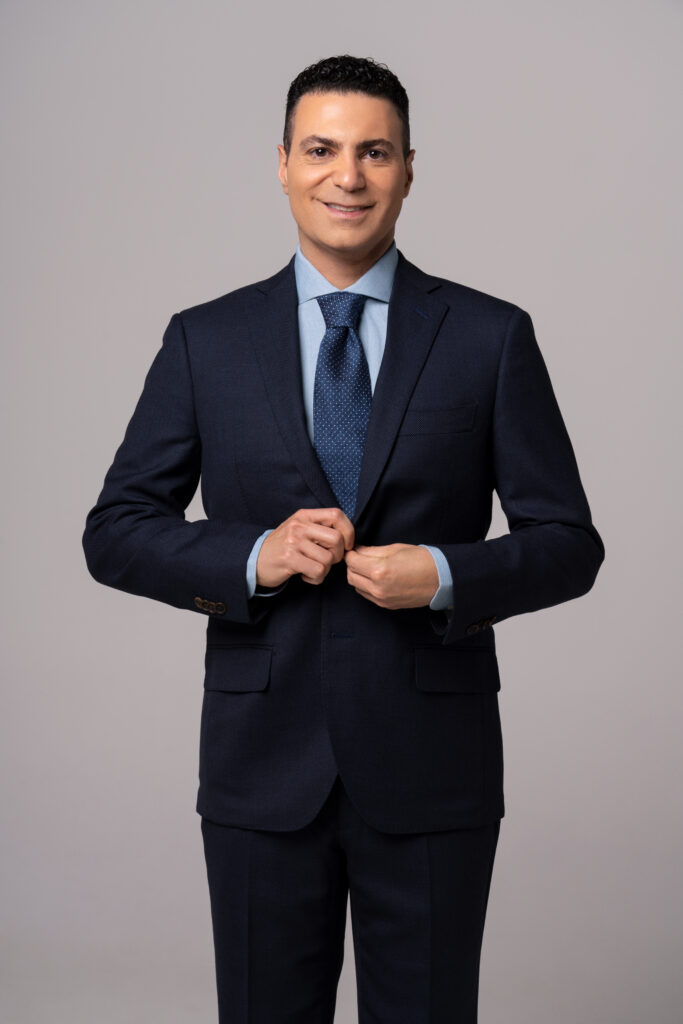
Steven Cuoco: Great question. It comes up with a conversation that I had last night and that I have quite often. A friend of mine in the industry said, “Steven, you say things that other journalists and publicists would never say,” and I said, “absolutely.” My legal responsibility as a publicist and a journalist is that I am a representative for the public, no different than a politician or an attorney.
Most people in PR don’t know the vows, legal morals, and ethics that we have to follow as publicists. Here in the States, you need education to be a journalist or to claim that you are a journalist. The fact is that I have been doing this for over thirty years. I’m complimenting the fact that changes are always going to happen; however, there are certain roles and responsibilities that, when we get ourselves involved in them, whether it’s public relations, journalism, or politics, we have to understand the law.
I found out that most people who are in public relations and journalism or claim to be in that field have no prior education to understand that a publicist is to be fair, honest, and disclose all material facts. Journalists are to be unbiased, fair, and objective. Both careers go hand in hand, but when we think about publicity, public relations, and journalism, there is a huge lack of due diligence in being objective. My friend said, “You say things the way other publicists and journalists would never say; I would be scared to say them.” I am not scared because it needs to be said, no matter how it is perceived. My responsibility is in the best interest of and for the public, whether it’s a client or a potential client. No matter who it is, I will be fair and honest and disclose all material facts.
If you do not have what we call a very good reason that comes with a story or a sense of being informative to inform the public of what’s happening with you and you’re just posting something because you’re looking for clout, you’re going to get backlash on it
Steven Cuoco
Fashion’s Uncharted Waters: Insights from Steven on PR, Publishing, and Pursuing Passions
FAB: With this as your point, is your conclusion then that PR and journalism are dead? Just as opined by Robert Phillips
Steven Cuoco: I would say that at the time, in 2016, with all due respect to Robert Philips, at that time, in reality, I could see his point of view in 2016, where it could be leading to, and why his perception of that is valid. I am not going to argue and say that’s not true because I don’t know his background or who he has worked with, and I don’t know what his client relationships were like. Everything depends on client relationships and the exact thing you’re working on. It all depends. I’ve had highs and lows. I’ve been doing this for over thirty years, and there were many times I wanted to get out of it because it’s a lot of administrative and legal work. Both go into being a publicist at the executive level.
If you would ask me what it means to be a publicist, I would say that to be a true publicist is just the same as being on the board of directors that oversees the president and CEO of a company. To be a true publicist is the same as being the press secretary, who is the voice of reason for the White House and the President. To be a true publicist is the same as being a judge in a courtroom who has to make moral and ethical decisions about what matters most and what’s in the best interest of what is at hand when we think about circumstances and situations.
In 2016, I would say there was a huge turn-around at that time, when technology—social media—was just coming to the surface. Everything is AI; what we are doing is AI. In 2016, technology was really taking a foothold. It had people believing that they could use tools, free apps, and social media. What was the point of having a publicist? I am going to say that having a publicist is the artery to every business, in everything that you do. It is a life force. You need a reputable, licensed, and credentialed publicist, not someone who got a five-dollar certificate off the internet and decided to start a PR agency. PR is not media placement; that’s marketing and advertising; that’s a tool, a part of public relations, and can be part of a job description in media placement.
Still to this day, I tailor to each journalist and media company individually and organically, just the same way my assistant Christina has sent information to you. You have to have those interpersonal skills. I’m going to say now, as of this decade and in this timeline and within this year and as we’re moving forward, when we think about Chat GPT, Microsoft has its own Chat BOT, and Google has its own Chat BOT, I am concerned that too many people have become complacent, codependent, and lazy to think and believe that success has to be immediate, it has to be fast, effectively fast, and that using platforms that are free is going to get you what you want.
I am going to tell you that it’s far from the truth. Anyone with that mindset does not have an understanding of business in reality. Even with dog crap, you can build and create a garden.
I am not going to say that what Robert Philips said is wrong. I believe that in his perception and in his reality for what was happening in his years of experience, it could be valid for his own reality, but for my reality, I am concerned that as long as companies and people choose to not care about each other and the people that are purchasing, investing, sponsoring, and advertising through them and with them, as long as there is a continued lack of care and interest, I believe every job has the risk of becoming outdated.
As for journalism, I believe that in our lifetime, AI will never take over. People would still want in-person photos; they want in-person videos; and they want to see people. I’m not going to have a digital AI character created so that you can interview me and interact with me, and then I’m behind somewhere just speaking through a microphone.
I see his point; I agree with him, but I’m going to also say it is not our responsibility as publicists to keep the industry alive. It is the responsibility of the people to do what’s right and to care about their business, customers, and clientele enough to know that if they are just going to continue to use Instagram and TikTok for free and make these companies richer than they are, they will always be a slave to someone else and at their mercy, whether they are paying or not. If they all have a solid team to build, they will understand what their terms and conditions, policies, and procedures are. Most importantly, if they don’t have a staff that cares about their mission statement and what they are doing in the world, I believe that businesses will fail more than anything else.
Everything that we post or publish online, you are endorsing. Fashion designers should be careful who they are taking a photo with. Be careful who you are being videotaped with
Steven Cuoco
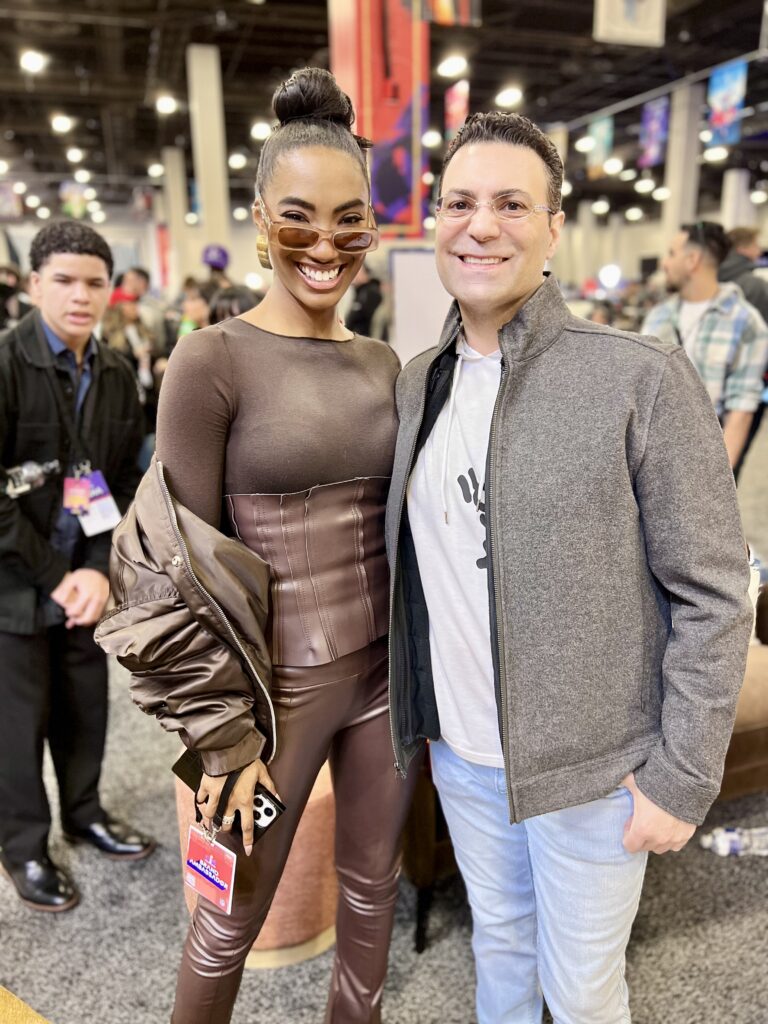
FAB: You are a judge for international and domestic talents; what qualities do you look for in aspiring creatives? How do you track their growth and development?
Steven Cuoco: What I do is look for people who are interested in wanting to be successful and know that there are only two options. You either work for it or you buy it. To digress back a bit to the answer that I shared before, most people want to buy an inflated persona, and if someone thinks about PR, they think, “How can I be next?” Nick Jonas, Kim Kardashian, Post Malone, or whoever else, and I say, “If you’re going to buy media, leave it to the politicians; if you’re running a sales campaign, do that.” Major media companies, journalists, and staff writers do research to make sure that they are going to write about you and publicise you. Media companies’ judiciary and legal responsibility are first to their advertisers, sponsors, and investors.
All content from media companies’ perspective has to have a call to action. “Does it meet our sponsorship?” Everything has to be analysed as to “how stories can be tailored to those hideous paper clips that people put between the articles.” There has to be care.
When I think about a client or anyone I’m working with, if someone is wanting to cheat, if someone wants to get into the fast lane, and they want to become a celebrity immediately, I would not work with them. I say to anyone who wants to do that, it’s the same as being an Olympic athlete. For most people and most careers, even if you’re a media company and you’re relying on advertising, sponsorship, or clients to sustain your business, what do you want your clients to think about you as a person or company? Did you win your gold legitimately, or did you secretly dope behind the scenes to win that gold?
What’s going to happen when the public finds out that you cheated to win that gold? You will never make a dollar again in your life as an entrepreneur or an independent business. You better get a job at a supermarket. That’s why I find out if somebody wants to dope and cheat, buy their publicity, buy their media, and buy their accolades. If they want to put at least six months to a year in development, or if they want to cheat and take the easy way out, then I won’t be a part of that because that’s going to cost me my reputation and my integrity, as well as my clients.
I am a publicist; I am not here to encourage you or anyone else to deceive the public and to deceive the people that are financially investing in you and your company to showcase some sort of accolade about how incredibly amazing you are, and you end up cheating and buying background. Like I said, leave it up to the politicians; that’s what they do. They buy their hour, they buy their success, and if someone wants to take the route of doing what a politician does, be prepared because you are not going to have a long career.
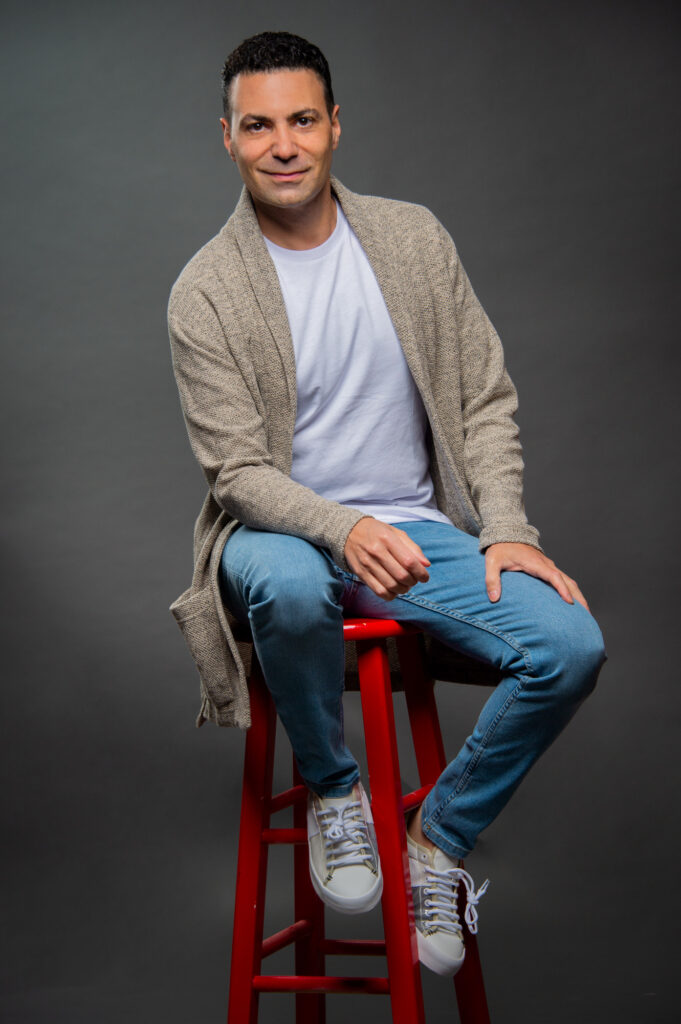
Fashion’s Ugly Truths
FAB: How do you use PR to help fashion brands differentiate themselves and cultivate a unique brand identity?
Steven Cuoco: The first thing I’d like to ask is: does the designer or the person in fashion know who they are? From working with runway designers, having represented project runway designers, and having experienced the world of fashion, I know it’s a complex industry. We know that independent fashion designers spend more money than they make, and unless they have an investor, how many people are going to be the next Tom Ford, Louis Vuitton, or Gucci? They are mega because they’re a public company where people can invest; it’s in the stock market; that’s why they have what they have. Also, somewhere, somehow, they obtain the funds and accolades, whether from PR or marketing aspects or ways to build their industry. You need hundreds of thousands to millions of dollars to ever equate, to even place a toe in the Tom Ford arena.
I want to digress a little bit and share what I encourage fashion designers and anyone in fashion or in media to do. Media companies do not want to feel like they are being pawned and used to have organic and paid media. Media companies, especially staff writers, do not respect those who are contributing writers for another company.
Let’s say someone is on Ford’s or Rollingstones’ council, spending $500 to $200 a year to be a so-called expert. People don’t want to be involved in that. Staff writers and immediate companies don’t want to feel like they’re being used because we don’t know anymore whether something is getting paid or not, even though the FTC here in the States requires, “Is this a press release or advertising? What is it? Still to this day, when we think about contributing writers to certain companies, there’s a lack of care for transparency.
To go back to fashion designers, who do they have for an ally? Who can they need in the media? And they do need public relations; they need someone to tell their story. Not even the last thing a fashion designer should do is be in the office. As a fashion designer or anyone in fashion, even if you are a stylist or an assistant, know your business. Know your work. If you want to know where you’re going in your life, find out where the money is coming from. Who is paying? Once you find out who the investor is or where the money is coming from, it’s going to make your life a lot easier.
What fashion designers also need to be extremely careful with are brand issues. Nike and Speedo—you can’t mix the both of them; you don’t mix Pepsi and Coke. Fashion designers must know where the money is coming from. That can mean investors, sponsors, advertisers, endorsements, or media outlets. Big firms control the majority of the media. The best interest for fashion designers is that before you sign a contract with anyone, before you bring anyone as an investor onto your team, find out who they are working with, what they are part of, who they are involved with, and where their money is flowing. Not only how their money is flowing but also where it is flowing to. You don’t want to have a conflict of interest or guilt by association.
You can’t control everything, but you do want to know who is contracted with whom because a fashion designer could land a reality show on LifeTime or Netflix, but who are their advertisers? Who is advertising on the show?
Let’s say a designer already has an investor or somebody is part of their financial investment roster. They could lose opportunities because they could end up looking into the agency, television company, or network. If they refuse to give a fashion designer a pass or an opportunity on a reality show, they may not disclose exactly why, but it could be a conflict of interest because of relationships. It could be a conflict of interest as to whether there was a photo found on Instagram or a video on Ticktock, and there is an assumption of association. Just like politicians here in the States, they may assume you are taking a photo with someone as an endorsement.
Everything that we post or publish online, you are endorsing. Fashion designers should be careful who they are taking a photo with. Be careful who you are being videotaped with. Be careful of what you’re publishing; it’s not posting. You’re publishing things on social media, online, and on your website. Unless you completely understand who you’re videotaped or photographed with and what you’re publishing online, don’t post. There could be guilt by association, and there could be a problem.
Most recently, I was photographed with a journalist who I met at a private party. We were talking, and I was interested in having this person as a potential guest on my show. I was warned about a lawsuit that had happened with her and the organisation that she was with, and I said that I wasn’t worried about that. My responsibility is to tell a story. Also, at the same time, I am not going to share that photo of her and myself that was taken. If or when I share that photo, it’s going to be because it’s going to have a valid reason. Don’t rush to post something. Wait and make sure that there is absolutely a good reason before you share something published online.
If you do not have what we call a very good reason that comes with a story or a sense of being informative to inform the public of what’s happening with you and you’re just posting something because you’re looking for clout, you’re going to get backlash on it. Believe me, if doors are not opening up for you, it’s because you published that content and shared it in a way that was careless and without much thought put into it.
FAB: Let’s talk about your book, “Guided Transformation: Poems, Quotes, and Inspiration.” What influenced your approach to writing this work?
Steven Cuoco: My goal initially was not to publish. I wasn’t planning on publishing. I was in counselling, and I also had a therapist at the time. I was taken from my family and put into foster care. My therapist asked if I had ever given therapeutic writing a try. I was about eight years old at this time. I said no. My therapist and my counsellor in school advised therapeutic writing, and the other advised EMDR. EMDR works well; you just watch something go back and forth, and the therapist or counsellor will ask questions. I would just write anything that would come, and I would always write in quotes, short stories, or anything within that scope.
I had all of these things develop when I was eight, and they were just sitting there. I think I threw out lots of my work that I did not care to keep because it was my way of just processing through what I was going through. I used therapeutic writing as a way to express my feelings, and it was also a way for me to begin to trust my environment again because I did not trust my biological family. I didn’t trust speaking to them about a lot of private issues. The thoughts that I had that people would probably marvel at for an eight-year-old, I would put down on paper, and I would burn them or rip them out.
Also, there were works that I was proud of that I kept. English was my best subject in high school, and when I put myself through college, one of my professors said that I would make a great author. When they did a psychological test on me, what came up was that I would be a great author. I decided that if I was going to be a successful and great author, I was going to write a novel or something that would be show-worthy.
I never thought of publishing any of my poems, quotes, or short stories, but I later thought, “Why not?” Denise, who worked in social work and was also a very good friend of mine, had a background working for fifteen years in mental health. There were a lot of times we would go to each other for advice. She was like, “You really should publish your work.” I had been hearing that since I was a kid, even before I was a teenager.
I started taking all of the work; there’s like sixty-seven pages in there. I took everything that I felt would be perfect together. I have two friends who offered to edit, but I refused. I wasn’t going to worry about perfection or precision or think about anything at all. I am doing this for me. If anybody buys the book, whatever. At the time, I cared, but I also didn’t care where it was going to go. I had not intended to be an author in that manner. I wanted to be a novelist. I wanted to follow in the footsteps of those who wrote incredible books that would turn into films. I always thought it was powerful that you could write a book that could be turned into a series.
I published it in 2012, I did my own PR, and I did not spend one penny on marketing. I just used my resources; I got interviews on the local Fox network, I got interviewed on CNN, I got some local magazine coverage, and all of a sudden, it became a bestseller in three different categories.
You can become an international bestselling author or an award-winning musician with very low numbers. I don’t have the exact numbers, but I’m not going to say I sold a million copies of my book to become a bestseller. It was way less than that. It’s easy to become a best-selling author. The New York Times best-selling authors sell for seventy-five to two hundred thousand dollars. If the New York Times ever wanted to give me that title, it had to be for free. Everything is bought. You want to get into a room? Buy a membership. You want to meet a politician? Buy a membership.
I know that I could have gone a lot further and been just as famous as any other A-list celebrity 10 or 15 years ago if I wanted to put myself in bankruptcy and spend all the money like they do. It’s been over thirty years, but now I’m sitting here with you.
The book became a best seller on its own because of the love, support, and respect for the decades that I built when it came to the relationships and the people that supported me, as well as the media: CNN, Fox interviews, local news, and magazine articles. They added additional value and solidification to my legitimacy as a real author. I tend to do more of what I don’t want to do than what I want to. That’s how I ended up writing that genre. I tend to be comfortably uncomfortable moving through life and figuring out where I end up. I’m glad I did that, even though I did not want to.
FAB: What would you say are the elements of a successful PR campaign? How can designers ensure that their campaign stands out in a crowded market?
Steven Cuoco: The media and the market for fashion are about brainwashing them and reminding them that they have to stay up-to-date and be informed by knowing that the public will always need something. It’s about consumption. Fashion is a beautiful industry; it is an art. However, corporations and greed destroy art and the artist. It is an ugly industry. It looks beautiful online; it looks beautiful in the photos and the videos. But anyone who really knows the fashion industry and what it takes to be in it, unless you have a trying passion for what you love to do and who you are in it with while doing it, don’t get into it.
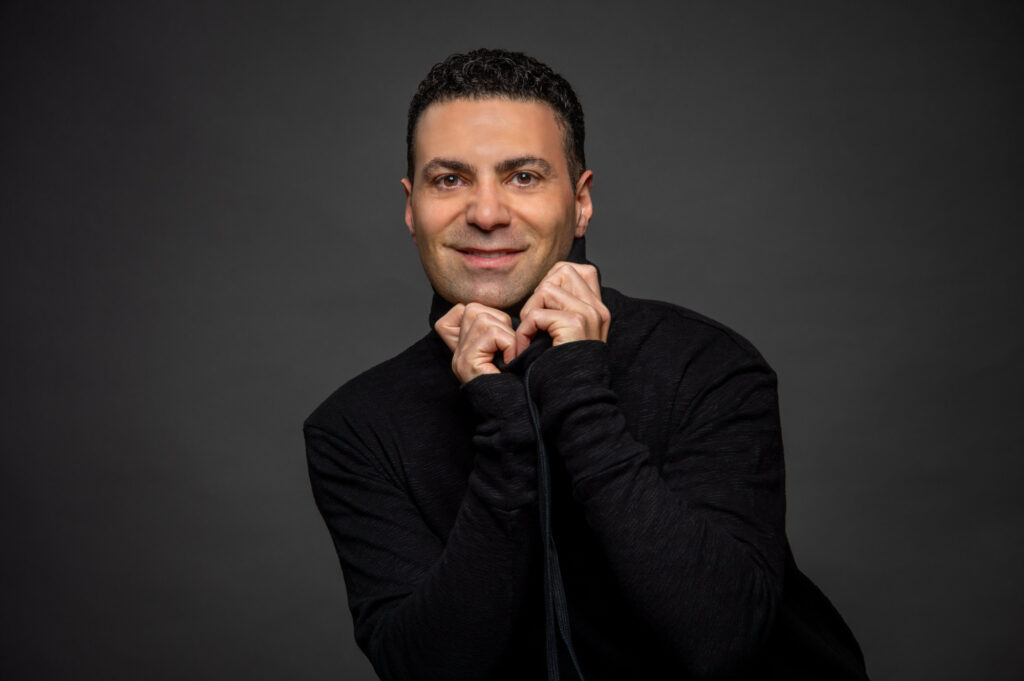
Fashion, Beauty, and Fitness with Steven
FAB: What are your must-have skincare products?
Steven Cuoco: Definitely serums; I like my lift creams. You always have to start with the foundations. I like anything with hyaluronic acid; I like the gentle enzyme treatment; and I do microneedling. Let’s say I ended up on a reality TV show. I’m going to honestly say my serum, my lift creams, and my moisturisers are coming with me. Serum, a great moisturising cream, and pure aloe vera gel. If it all fails, for my skin type, which has very dry, sensitive skin, pure aloe vera gel works every time. It works with lifting; it helps with moisture, fine lines, and wrinkles.
When they say your body changes every seven years, it is true. So, I cycle through changing my skincare products every six months, and I like to find something new depending on the weather, stress, nutrition, and lifestyle. Your skin will never be the same. I believe that pure aloe vera gel that is filtered and clean is the only product I would recommend that would help with mostly everything without breaking the bank. Stay up to date on the newest in the world of Fashion, Arts, Beauty and Lifestyle; Follow FAB on Instagram.
FAB: What is your favourite outdoor workout activity?
Steven Cuoco: Lunges. I like to keep my butt tight. Lunges, push-ups, stretching. Pilates is my ultimate favourite; it hits everywhere. I like doing the plank, but it’s my least favorite. It hits my lower back no matter how I try to perfect my posture. The plank is one of the most challenging workouts to do. However, it is highly perfective.
FAB: What’s your go-to accessory for completing a casual outfit?
Steven Cuoco: Cardigan all the way.
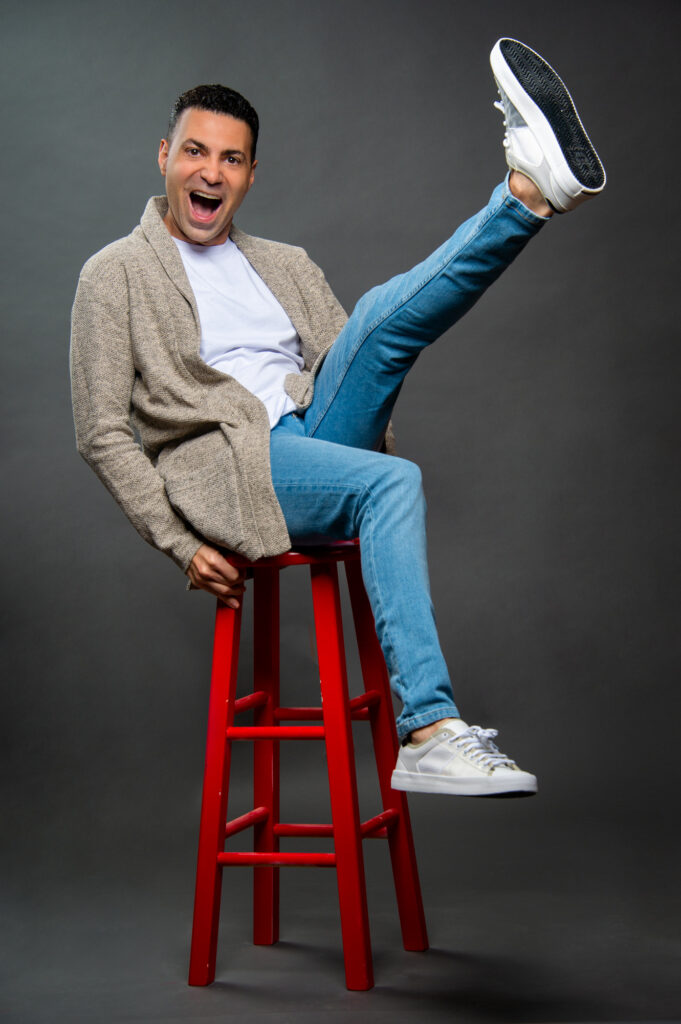
Fun Zone: #FABFastFive
FAB: What is the fanciest event you have ever attended?
Steven Cuoco: The Oscars
FAB: If you were given the chance to make your one wish come true, what would it be?
Steven Cuoco: To be on a reality TV show.
FAB: What movie makes you laugh even after watching it for a long time?
Steven Cuoco: –
FAB: Where is your all-time dream vacation company?
Steven Cuoco: Fiji.
FAB: If you had 1 billion dollars, what would you spend it on?
Steven Cuoco: Expanding my radio station, my business, and creating jobs.
More Like This
Elevate Your Fashion Branding Game with the Elena Nicolussi Moretto Formula
Fashion At The Intersection Of Art And Commerce: La Katz Boss, Laura Sänger’s Unique Approach
Nomader by EDDIE MARTINEZ Curated by Alison M. Gingeras
Mythology Meets Sustainability At RHEA
Naschmarkt’s Epicurean Delights to Enjoy at Genuss Momente, Vienna
5 year celebration by Viviers at SAFW with Andrea Adamo in OUR ELEMENT(AL)

